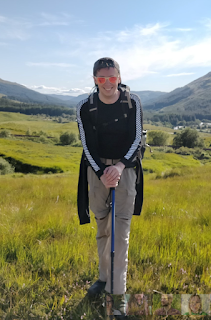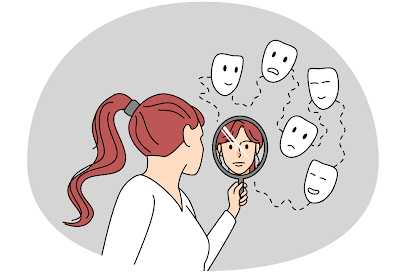This blog post is by Zsuzsanna Chappell. Zsuzsanna is an independent scholar and research associate at the Centre for the Philosophy of Natural and Social Sciences, London School of Economics. She currently writes on the social philosophy and ethics of mental illness, and the role of researchers with subject-relevant lived experience in the human sciences. Previously, she held academic positions at the London School of Economics and the University of Manchester and is the author of Deliberative Democracy: A Critical Introduction, Palgrave 2012.
Zsuzsanna reports from the third annual Philosophy of Psychiatry and Lived Experience workshop. The workshop was held on 17-18 April 2023, online (hosted by the University of Umeå). The aim of these workshops has been to bring together philosophers and philosophy-adjacent scholars who self-identify as having lived experience of mental disability / difference, and are also writing on these topics.
 |
| Zsuzsanna Chappell |
Our first post described our main activities so far and why we believe there is a need for a workshop specifically for philosophers with subject-relevant lived experience. Last week's post also summarised two of the six papers presented at this year’s workshop. This post will describe the remaining four.
Shay Welch (Spelman College): Am I Safe Enough For You? On Borderline Personality Disorder
Welch offered an erudite phenomenological insight into what it is like to live with borderline personality disorder (BPD). It is a way of being which is full of inconsistencies; of overwhelmingly hatred for oneself while still loving oneself, of over-riding boredom and emptiness accompanied by emotional fullness. Based on her own experiences of erasure and inner death, she drew out the implications of erasing this borderline sense of self, something which is demanded by society and by psychiatry.
She contrasted BPD and responses to it with addiction, arguing that the demand on BPDers is to erase what it is tobe themselves, rather than to simply let go of a dysfunctional habit or way of life. This kind of self-erasure is a kind of violence not seen in society’s response to all mental disorders, which for the most part BPDers will finally consent to, even if they will still continue longing for their unmedicated selves. Rather than seeing BPD as an inherent source of vice, she argued that the qualities that come from it, - whether impulsiveness or empathy, - demand a different way of cultivating virtues to a high level which can make BPDers a valuable part of our moral community. This paper is now forthcoming in The Philosophical Forum.
Rachel Handley (Trinity College Dublin): Mental Illness and Transformative Experience
For Handley, their anxiety is a special kind of transformative experience. Rather than changing them from one moment to the next, it transformed them over time. This experience, they argued, would be impossible to understand without taking into account its transformative component. This seems to have an epistemic component as well for them: the sheer outrageous excess of anxiety disorder needs to be experienced to be believed. At the same time, their anxiety was closely tied to their identity: anxiety was part of them.
They cannot look at their disability and assess it from above, there in no non-anxious Rachel we can compare anxious Rachel to. This complicates the way in which we can understand transformative experience. It is not immediate, there is no easy baseline against which the transformation can be measured, the transformation may even be episodic. Very interestingly, they argue that certain kinds of transformations can even block further transformations, for example when it comes to resistance to a medicated self.
 |
| Rachel Handley |
Zsuzsanna Chappell (independent scholar): Shared decision-making in psychiatric diagnosis
Access to the internet and social media have made people more aware of possible diagnoses, while at the same time there is also increased official reliance on self-diagnosis (just think of Covid-19 home tests or the recorded phone messages urging us to check the NHS website before we are connected to the GP receptionist). Medical sociologists (eg Jutel) argue that as a result doctor-patient relationships have changed, have become less unequal in many ways. These changes may be harder to accept in psychiatry, given that patients are often supposed to lack insight.
Chappell argues that this is problematic as diagnostic labels strongly influence both internal, personal identity and external, social identity, and thus some will be easier to wear than others. This gives us an increased incentive to take into account patients’ ideas of what their problems may be, especially if we believe that psychiatric diagnoses are to some extent social constructs in the way that many other medical diagnoses are not. This is made possible if we take into account the inherent relationality of diagnoses: they will influence the relationships of the patient with themselves, with their clinicians, with friends, family and wider society.
This preserves psychiatrists’ expertise but in a modified form: the point is not to allow patients to self-diagnose themselves inappropriately, but to give greater scope to shared decision-making when differential diagnoses are available.
David Ellis (Leeds Trinity University): A Phenomenological Investigation of ADHD - Language and Medication
Ellis drew on his personal experience of growing up with with ADHD to map out how language around ADHD and its management, introduced at a young age, inevitably shapes the development of the self. This can leave ADHDers unsure whether their neurodivergence is a disability or whether their medication is “treatment” in any meaningful sense. This touches not only on experiences of authenticity, but also turns the self into a battle ground between the “normal” and the “deviant”.
Ellis was told that his ADHD was “undesirable”, that taking tablets and learning coping mechanisms would help, to the point that he came to identify his “real” self as the self without ADHD. Yet it also became increasingly obvious to him that managing someone’s ADHD is at least as much for the benefit of doctors and teachers. In the abstract he writes: “Being given medication whilst being told that it will ‘help’ not only caused me to think that the real me is the medicated me, but that the default natural me is akin to an illness in need of treatment, and that one of its symptoms is my inability to recognise my illness and interests. This develops attitudes of self-rejection, where part of me was seen as something that should not be seen.”
His conclusion from these reflections is that since ADHD is part of the self, it is in fact unhealthy to develop negating, medicalising views towards a part of oneself. This contradicts the language of help which is usually adopted by professionals. Ellis’s talk really brought it home to me how neurodivergent children are positioned as the problem which not only needs to be solved, but which just requires too much effort from everyone to manage.
 |
David Ellis
|
================================================
So far, we have limited participation in our workshops to academic philosophers and philosophy-adjacent scholars who self-identify as having lived experience of mental disability / difference. (We never ask for any details or disclosure beyond a basic self-identification.) Presenters are free to give talks which are as personal or as abstract and general a they wish.
Our group is not a “secret” one, but we have struggled with working out how to advertise it effectively beyond word of mouth. We have also talked about a workshop where we would share our work with “Sane” allies, about the possibility of starting a blog, and are planning a workshop based in an American time zone.
This blog post is part of our efforts to publicise our work more widely. If you are a philosopher of psychiatry / mental health / neurodiversity with lived experience or if you are an ally who would like to support our project, we would love to hear from you at PhilPsyLivedExp@gmail.com













